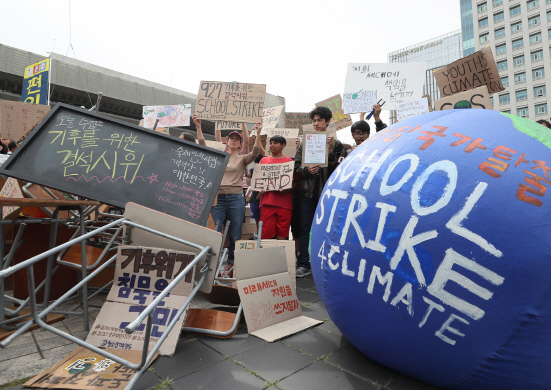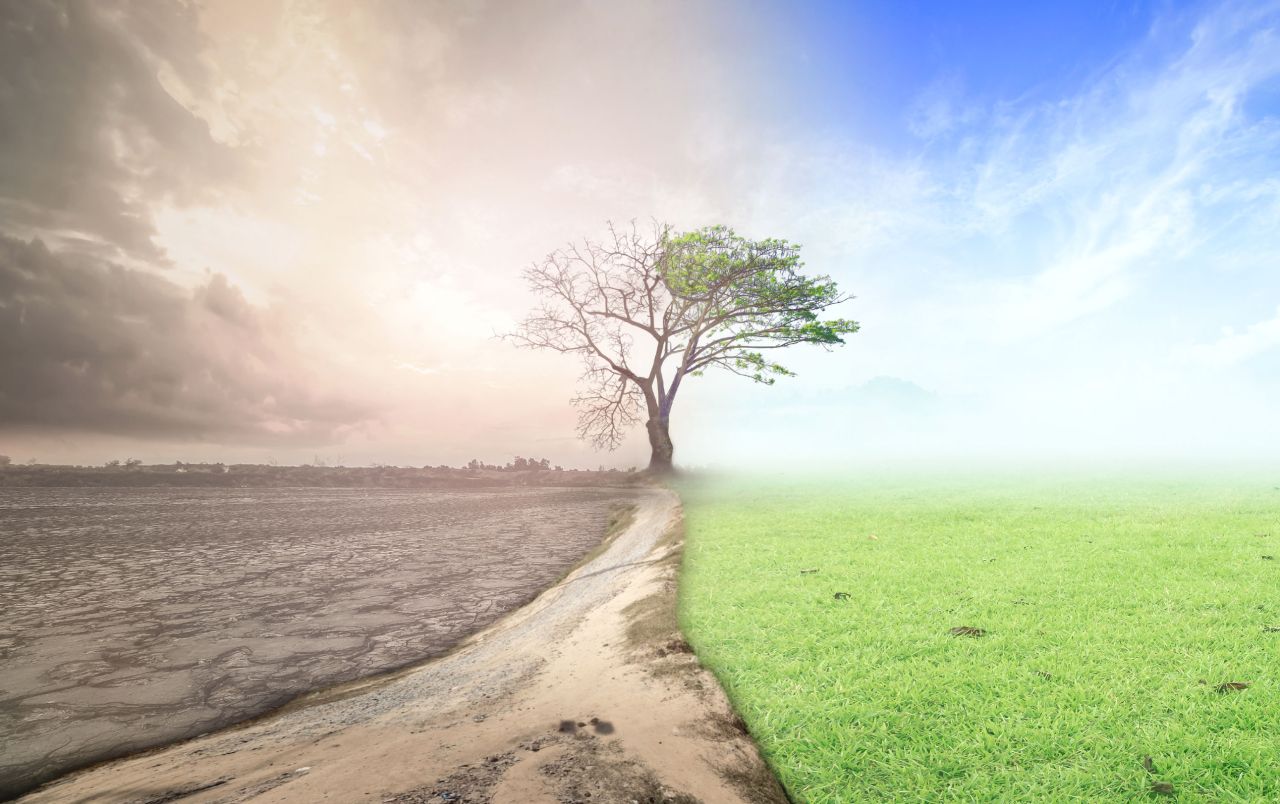[What the 2020s will hold for Korea] Visible signs of climate change
By Ock Hyun-juPublished : Dec. 31, 2019 - 11:41
A new decade has dawned. Unprecedented challenges await Korea from an aging and shrinking population to accelerated warming of the peninsula.
The Korea Herald has prepared a four-part series looking into some of the changes and challenges facing the nation in the 2020s. -- Ed.
The sea level is rising. Spring and autumn are getting shorter, while summer is becoming longer. South Korea is blanketed by toxic air more frequently. All these point to one thing: Global warming is unfolding on the Korean Peninsula.
The country has pushed for green growth since 2008, when then-President Lee Myung-bak declared a low-carbon, green-growth strategy as a vision for the nation’s long-term development. Incumbent President Moon Jae-in’s green initiatives, such as his nuclear phase-out policy, are criticized by some as being too drastic.
However, these moves amounted to much talk and little progress, climate experts and activists say.
The Korea Herald has prepared a four-part series looking into some of the changes and challenges facing the nation in the 2020s. -- Ed.
The sea level is rising. Spring and autumn are getting shorter, while summer is becoming longer. South Korea is blanketed by toxic air more frequently. All these point to one thing: Global warming is unfolding on the Korean Peninsula.
The country has pushed for green growth since 2008, when then-President Lee Myung-bak declared a low-carbon, green-growth strategy as a vision for the nation’s long-term development. Incumbent President Moon Jae-in’s green initiatives, such as his nuclear phase-out policy, are criticized by some as being too drastic.
However, these moves amounted to much talk and little progress, climate experts and activists say.

Signs of climate change have become more visible in the past decade, and without proper action in the 2020s, global warming is expected to hit the country to a greater extent, they warn.
“For the past decade, the number of coal-fired power plants and cars, production and consumption of coal energy and greenhouse gas emissions have increased,” said Lee Ji-eon, climate and energy coordinator at the Korea Federation for Environmental Movements, adding that the economy has always been prioritized over the environment.
Given such an approach, Korea’s annual greenhouse emissions reached a record high of 709.1 million tons in 2017, as the world’s seventh-largest greenhouse gas emitter still relies heavily on coal-fired power plants and nuclear reactors for electricity generation.
The sea level rose 2.97 millimeters on average every year for the past 30 decades between 1989 and 2018, recording a 3.4-milliliter increase from 2009 to 2018, according to the Korea Hydrographic and Oceanographic Agency.
Summer lasted for 126 days between 2009 and 2018, 10 days longer than between 1981 and 2010. Without efforts to cut down emissions, subtropical areas will expand to 52 percent of the country’s territory in 2100, from less than 10 percent at present, according to an estimate by professor Choi Young-eun from Konkuk University.

In terms of its response to climate change, Korea ranked 58th out of 61 countries, one notch down from a year earlier, according to the Climate Change Performance Index 2020.
In June, the Moon administration adopted the third Energy Master Plan, under which it aims to reduce reliance on coal power and increase the share of renewable energy to 20 percent by 2030 and 30-35 percent by 2040, up from 7.6 percent in 2017.
Its goal, however, is being criticized for being unambitious, with energy still expected to remain heavily dependent on fossil fuel-fired power -- 39 percent of generated electricity in 2014. It also falls short of the Paris Agreement’s target of limiting the increase in global temperatures to 1.5 degrees Celsius.
Activists say the priority should be to draw up policies that aim to remove primary sources of emissions, such as coal-fired power plants or diesel cars, and implement these across sectors encompassing energy, industry and labor.
A positive sign is that public awareness in climate change has been rapidly growing, pressuring the government to act more rapidly and boldly.
Korean students took to the streets on four occasions this year to demand the government take measures to mitigate climate change, joining the global movement triggered by Swedish teen activist Greta Thunberg.
“Low carbon development will be a global standard from now on. If a country like South Korea, which is scarce in natural resources and heavily reliant on exports, fails to keep pace with such a change, it will negatively affect the economy, industry and job situation. It is about energy security -- preparing ourselves for the future by shifting to renewable energy,” climate activist Lee said.
By Ock Hyun-joo (laeticia.ock@heraldcorp.com)
-
Articles by Ock Hyun-ju



















![[Today’s K-pop] Treasure to publish magazine for debut anniversary](http://res.heraldm.com/phpwas/restmb_idxmake.php?idx=642&simg=/content/image/2024/07/26/20240726050551_0.jpg&u=)